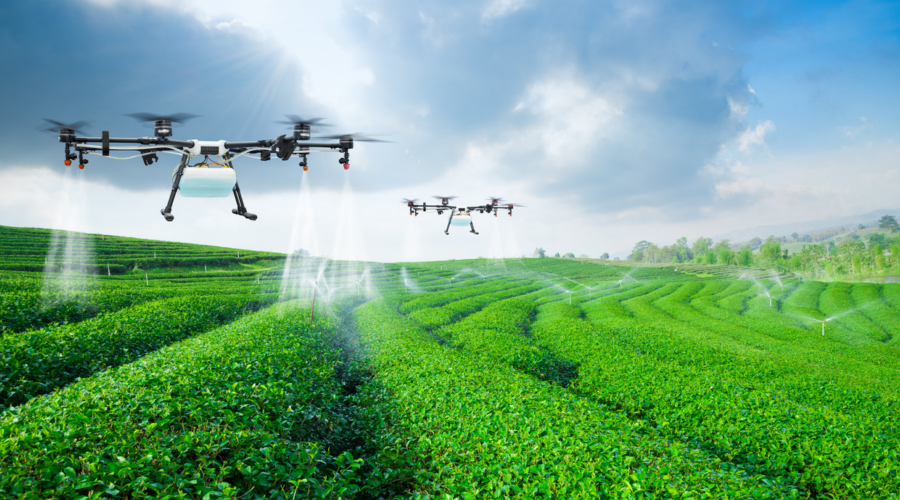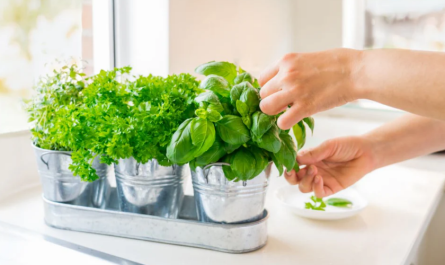The agriculture industry is undergoing a technological revolution, with innovations like drones and smart sensors leading the charge. These advancements are not only increasing efficiency but also paving the way for sustainable farming practices. In this blog post, we’ll explore how these technologies are transforming agriculture and shaping the future of farming.
The Rise of Agricultural Drones
Precision Agriculture
Drones have become an integral part of precision agriculture, allowing farmers to monitor crops with unprecedented accuracy. Equipped with high-resolution cameras and advanced sensors, drones can capture detailed images of fields, helping farmers assess crop health, soil conditions, and pest infestations.
Benefits of Drones
- Efficient Monitoring: Drones can cover large areas quickly, providing real-time data that helps farmers make informed decisions.
- Cost-Effective: By identifying issues early, drones help reduce the need for manual inspections, saving time and labor costs.
- Environmental Impact: Targeted interventions reduce the use of pesticides and fertilizers, promoting sustainable farming practices.
How Drones Work
Drones use multispectral and thermal imaging to detect variations in crop health. They can identify stressed plants, water shortages, and nutrient deficiencies, enabling precise interventions. This technology allows for targeted spraying, reducing waste and environmental impact.
Smart Sensors: The Backbone of Modern Farming
Real-Time Data Collection
Smart sensors are revolutionizing how farmers collect and analyze data. These devices monitor various environmental factors, such as soil moisture, temperature, and humidity, providing valuable insights into crop conditions.
Types of Smart Sensors
- Soil Sensors: Measure moisture levels, nutrient content, and pH to optimize irrigation and fertilization.
- Weather Sensors: Track temperature, rainfall, and wind speed to help farmers plan planting and harvesting schedules.
- Livestock Sensors: Monitor animal health and behavior, improving welfare and productivity.
Benefits of Smart Sensors
- Increased Yields: By providing precise data, sensors help optimize resource use, leading to higher crop yields.
- Resource Conservation: Efficient water and fertilizer use reduces waste and conserves natural resources.
- Risk Management: Early detection of adverse conditions helps mitigate risks and prevent crop loss.
Integrating IoT in Agriculture
The Internet of Things (IoT) in Farming
IoT technology connects various devices and sensors, creating a network that facilitates seamless data exchange. This integration allows for automated systems that enhance efficiency and decision-making in agriculture.
Applications of IoT
- Automated Irrigation: IoT systems adjust watering schedules based on real-time soil moisture data, conserving water and ensuring optimal plant growth.
- Predictive Analytics: By analyzing historical and current data, IoT platforms predict trends and potential issues, enabling proactive management.
- Supply Chain Optimization: IoT enhances traceability and transparency, improving logistics and reducing food waste.
Challenges and Solutions
- Data Security: Protecting sensitive information is crucial. Implementing robust cybersecurity measures ensures data integrity.
- Connectivity: Rural areas may face connectivity issues. Investing in infrastructure and using satellite technology can overcome these challenges.
The Role of Artificial Intelligence
AI in Agriculture
Artificial Intelligence (AI) is transforming agriculture by providing advanced analytics and automating complex tasks. AI-powered tools analyze vast amounts of data, offering insights that improve decision-making and operational efficiency.
Key AI Applications
- Crop Monitoring: AI algorithms process drone and sensor data to identify patterns and predict outcomes.
- Pest Control: AI systems detect pest infestations early, enabling targeted interventions that minimize chemical use.
- Yield Prediction: Machine learning models forecast crop yields, helping farmers plan and allocate resources effectively.
The Future of AI in Farming
As AI technology advances, its applications in agriculture will expand, offering even more sophisticated solutions for managing farms sustainably and efficiently.
Sustainable Farming Practices
The Importance of Sustainability
With the global population rising, sustainable farming practices are essential to meet food demands without depleting natural resources. Innovations like drones, sensors, and AI play a crucial role in achieving this balance.
How Technology Promotes Sustainability
- Reduced Chemical Use: Precision agriculture minimizes the need for pesticides and fertilizers, protecting ecosystems.
- Water Conservation: Smart irrigation systems optimize water use, preserving this vital resource.
- Soil Health: Monitoring soil conditions helps maintain fertility and prevent degradation.
Case Studies
- Vertical Farming: Utilizing smart sensors and AI, vertical farms maximize space and resource efficiency, producing high yields with minimal environmental impact.
- Agroforestry: Integrating trees with crops and livestock, this practice benefits from IoT monitoring to enhance biodiversity and soil health.
Conclusion
The integration of drones, smart sensors, IoT, and AI is revolutionizing agriculture, making it more efficient, sustainable, and resilient. These technologies empower farmers with the tools they need to meet the challenges of the future while safeguarding the environment. As innovation continues, the potential for transforming agriculture is limitless, promising a brighter, more sustainable future for farming.







